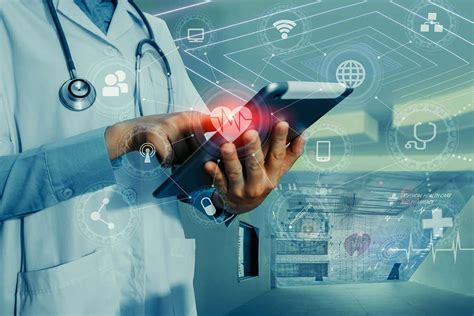Introduction
The healthcare industry is on the cusp of a major transformation. Advances in technology, genomics, and artificial intelligence (AI) are creating new possibilities for diagnosing, treating, and preventing disease. But what does the future of healthcare hold?

I’m not a doctor, but I’ve spent a lot of time thinking about the future of healthcare. Here are a few of my speculations:
Personalized Medicine
One of the most exciting trends in healthcare is the rise of personalized medicine. This approach to healthcare takes into account an individual’s unique genetic makeup, lifestyle, and environment to develop tailored treatments.
Personalized medicine has the potential to revolutionize the way we treat disease. For example, doctors may be able to use genetic testing to identify people who are at risk for developing certain diseases, and then take steps to prevent those diseases from developing. Personalized medicine may also lead to the development of new treatments that are more effective and have fewer side effects.
Digital Health
Digital health is another major trend that is shaping the future of healthcare. Digital health refers to the use of technology to improve health outcomes. This includes everything from wearable devices that track activity levels and sleep patterns to mobile apps that provide access to medical information and support.
Digital health has the potential to make healthcare more convenient, affordable, and accessible. For example, people may be able to use wearable devices to monitor their health and receive alerts if they are at risk for developing a health problem. People may also be able to use mobile apps to connect with doctors and other healthcare professionals, and to access medical information and support.
Artificial Intelligence
Artificial intelligence (AI) is another technology that has the potential to transform healthcare. AI can be used to analyze large amounts of data, identify patterns, and make predictions. This information can be used to improve diagnosis, treatment, and prevention of disease.
For example, AI can be used to analyze medical images and identify signs of disease that may not be visible to the human eye. AI can also be used to develop new drugs and treatments, and to predict the risk of developing certain diseases.
Conclusion
The future of healthcare is bright. Advances in technology, genomics, and AI are creating new possibilities for diagnosing, treating, and preventing disease. Personalized medicine, digital health, and AI have the potential to make healthcare more convenient, affordable, and accessible.
I’m not a doctor, but I’m excited about the future of healthcare. I believe that these technologies have the potential to make a real difference in the lives of millions of people.
Additional Thoughts
Here are a few additional thoughts on the future of healthcare:
- Healthcare will become more proactive. Doctors will be able to use technology to identify people who are at risk for developing certain diseases, and then take steps to prevent those diseases from developing.
- Healthcare will become more personalized. Doctors will be able to use genetic testing and other data to develop tailored treatments for each patient.
- Healthcare will become more accessible. Digital health will make it easier for people to connect with doctors and other healthcare professionals, and to access medical information and support.
- Healthcare will become more affordable. Technology will help to reduce the cost of healthcare, making it more affordable for everyone.
I believe that the future of healthcare is bright. I’m excited to see what the future holds.
